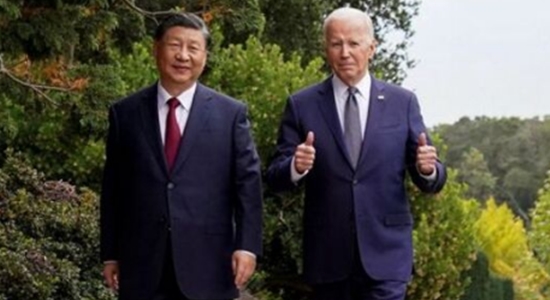
Nobody expected it to be disbanded.
But the House committee set up two years ago by the Republican majority to target the Chinese Communist Party “will get a new lease on life in the next Congress, bolstered by bipartisan support and a slew of supportive top officials in the coming Trump administration, the panel’s chairman confirmed in an interview” (“House panel on Chinese Communist Party threats survives into new Congress,” The Washington Times, November 17, 2024).
The House Select Committee on the Strategic Competition Between the United States and the Chinese Communist Party, Select Committee on the CCP for short, has in its short life introduced many bills to counter various CCP threats.
Reporter Bill Gertz quotes Representative John Moolenaar, Republican, who leads the committee: “I’m very optimistic that we’ll continue to make progress. The committee has been very bipartisan, and that proves that bipartisanship is still possible when Democrats and Republicans come together against a common threat, a common adversary.”
The committee may have been bipartisan in most cases. But its legislation ended up languishing in the U.S. Senate after making its way out of the U.S. House. Presumably, the enactment rate will be higher now that the president will be alert and on the alert about China and now that the GOP will have a majority in both chambers.
Members passed 25 pieces of legislation targeting the Chinese Communist Party and the government, including restrictions on Chinese land purchases in the U.S. heartland, curbs on Chinese-made drones and issues related to security matters in the Taiwan Strait. Among the bills were proposals to secure U.S. supply chains from Chinese pressure or intervention, including electric car batteries, health care and critical infrastructure.
Other bills would have tightened export controls on sensitive technology sold to China, bolstered civil liberties and human rights in places such as Hong Kong, and countered Chinese global influence operations.
The bills did not get votes in the Senate, but the panel hopes to add measures to the next annual defense authorization bill and pass in stand-alone legislation.
Mr. Moolenaar said the committee could pass the China legislation package with the Senate and House in Republican control during the next Congress. The Biosecure Act and the End China’s De Minimis Abuse Act are priorities.
Perhaps, also, some bills can be strengthened. The Taiwan Conflict Deterrence Act may be one example of legislation that should be tougher. The Taipei Times has opined that it is unlikely to be effective in its present form.





